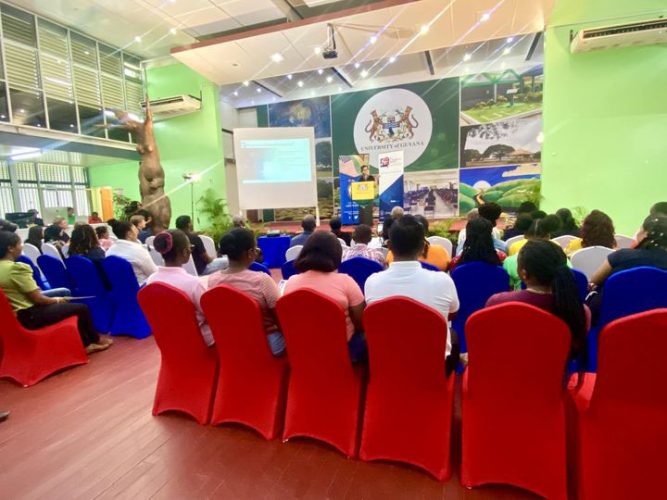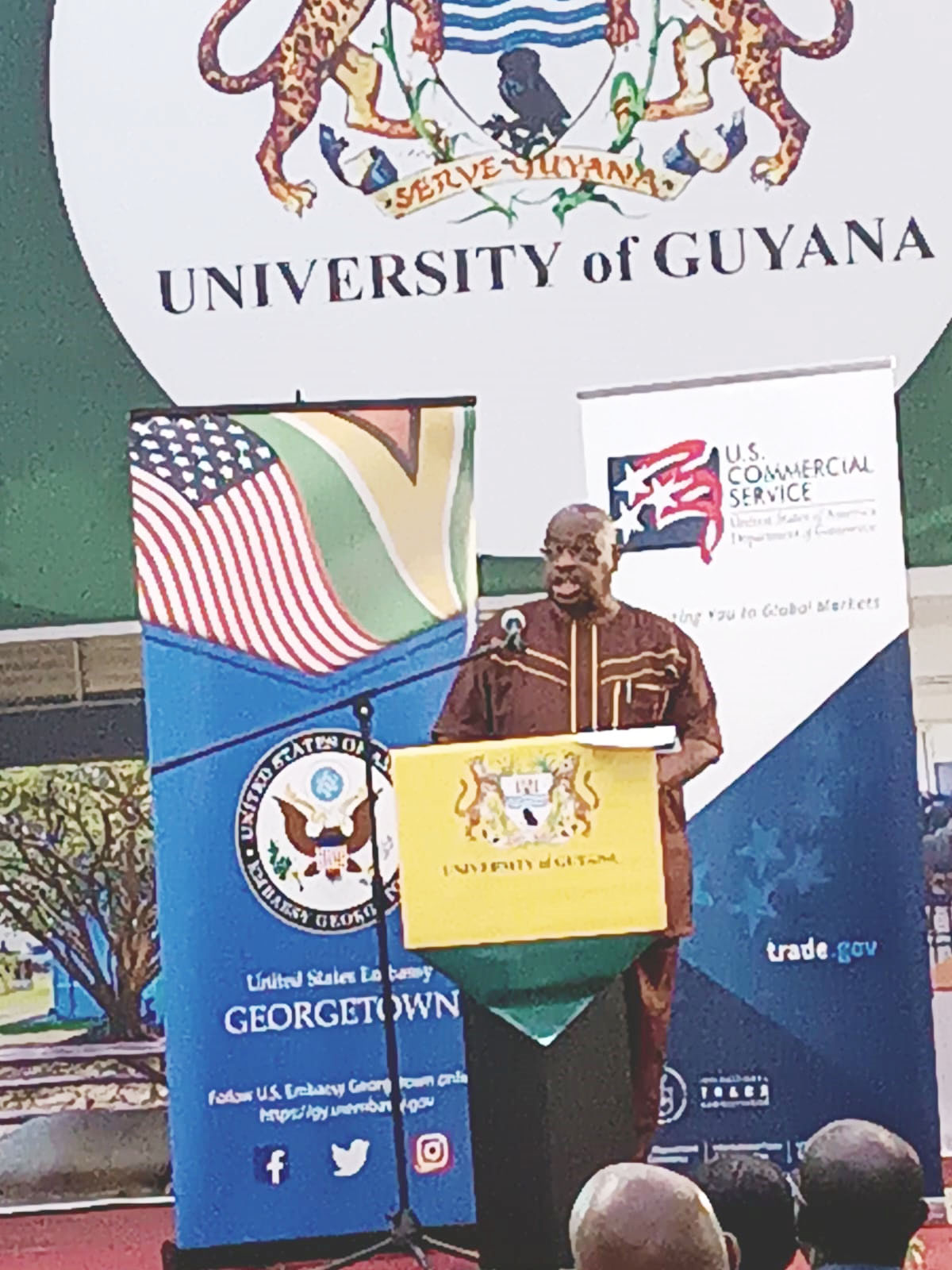During the University of Guyana’s hosting of a discussion on intellectual property (IP) rights yesterday, Professor Leyland Lucas of the School of Entrepreneurship Business and Innovation (SEBI) highlighted the importance of understanding and protecting intellectual property in a rapidly growing economy like Guyana.
Emphasizing the significance of intellectual property as an intangible asset, he explained that it was the result of time and mental capacity and should be valued as such. Lucas further stressed the need for exclusivity in order to benefit those who created the intellectual property and prevent its misuse or dilution.
The presentation delved into the various forms of intellectual property, such as patents, trademarks, and copyrights, and their role in giving the owners a competitive advantage. Lucas also addressed common misconceptions about intellectual property rights, particularly pertaining to economic status justifying violations.

Furthermore, he underscored the financial implications of intellectual property rights violations, emphasizing the importance of protecting and respecting the rights of creators. He cited examples of artists and musicians, like Dave Martins and the Tradewinds whose work is used without permission, resulting in lost revenue and negative impacts.
Lucas also discussed the benefits of intellectual property rights, including sparking innovation, promoting economic growth, and preventing the duplication of effort. He highlighted the role of intellectual property in fostering cultural diversity and knowledge sharing.
The presentation further touched on common challenges in dealing with intellectual property rights, such as lack of awareness, enforcement issues, and the cost of protecting intellectual property. Lucas stressed the need for education and compliance to protect intellectual property in a rapidly evolving technological landscape.
He highlighted the role of universities in protecting intellectual property through patenting and trademark offices and the importance of educating students and stakeholders on the value of intellectual property. He then urged for compliance and enforcement measures to adapt to technological advancements and ensure that creators are rewarded for their innovations.
Meanwhile, US Patent and Trademark Office IP advisor Maria Dellore provided an overview of the three main pillars of intellectual property, namely patents, trademarks, and copyrights. She explained the importance of protecting creations and ideas through these mechanisms and discussed the benefits of having intellectual property rights, such as attracting investors and fostering innovation.
US Patent and Trademark Office IP attaché David Kellis shared information about the regional intellectual property office and emphasized the role of intellectual property in driving economic development and fostering a conducive environment for creativity and innovation. He also highlighted the upcoming World Intellectual Property Day and the theme for this year, emphasizing the role of intellectual property in contributing to the Sustainable Development Goals.
World Intellectual Property Day is observed on April 26, annually and this year’s team is “IP and the SDGs: Building our common future with innovation and creativity”. This theme highlights the importance of intellectual property in fostering innovation and creativity that can ultimately contribute to the achievement of the United Nations Sustainable Development Goals.
Intellectual property is a crucial aspect of modern society, as it protects the creations of individuals and encourages innovation and creativity. The discussion held at the University of Guyana was aimed at raising awareness about the importance of intellectual property and providing valuable information to students and the artistic community.
According to UG Vice Chancellor Professor Paloma Mohamed, the university has been engaging in efforts to incorporate intellectual property modules in relevant courses to ensure that students are well-informed about their rights and the importance of protecting their work. Participants at the event were encouraged to be proactive in protecting their creations and to utilize intellectual property mechanisms to drive economic development and contribute to societal progress.





